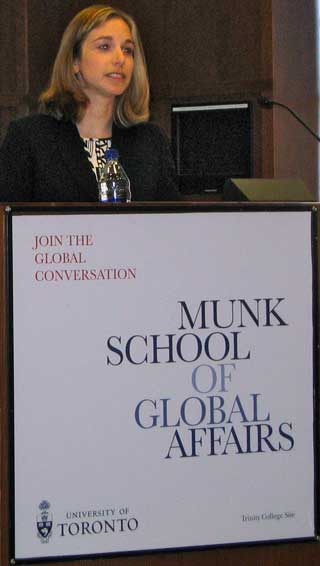CLAIHR is proud to partner with Canadian International Council and Gowlings LLP to present a free keynote event featuring Dr Mukesh Kapila OBE, former Head of the United Nations in Sudan. In the talk, entitled Why do our global institutions fail to prevent & protect against mass atrocities?, Dr Kapila will reflect on his experiences in Darfur when he attempted to alert the world to the unfolding genocide and will consider the current crises in Sudan today. He will draw upon his extensive international experience working within the UK government, the UN and Red Cross movement which also took him to Rwanda and Bosnia. Dr Kapila will highlight the importance of individual accountability as well as collective responsibility in the prevention of genocide and other crimes against humanity in Sudan and around the world and will pose lessons to be drawn for future practice.
Date: Friday, May 10, 2013
Time: Noon (attendee sign-in will begin at 11:45AM)
Venue: Gowlings LLP, First Canadian Place, 100 King St W, 16th Floor
Registration Instructions:
Participants *must* pre-register. No walk-ins allowed. Deadline to pre-register is 5PM, Thursday, May 9th.
By email: toronto [at] opencanada [dot] org
By phone: 416-590-0630
Online: http://cictoronto10may2013.eventbrite.ca/
Additional Details:
Light refreshments will be served after the talk.
Program is eligible for 1.5 hours of substantive CPD with LSUC.
Click here to download event flyer.
Dr Kapila’s New Book, “Against a Tide of Evil”
Dr Kapila is in Toronto as part of a cross-Canada tour to promote his new memoir about his efforts to bring attention to the mass atrocities in Darfur while he was UN Chief in Sudan. The book was launched in Geneva at the start of May, to coincide with the 10 year anniversary of the horrific events in Darfur. A portion of the proceeds from the books sold through the UK non-profit organization Aegis Trust will go towards preventing future mass atrocities.
MK Geneva press release to read the news release by Aegis Trust on the book and its launch in Geneva.



